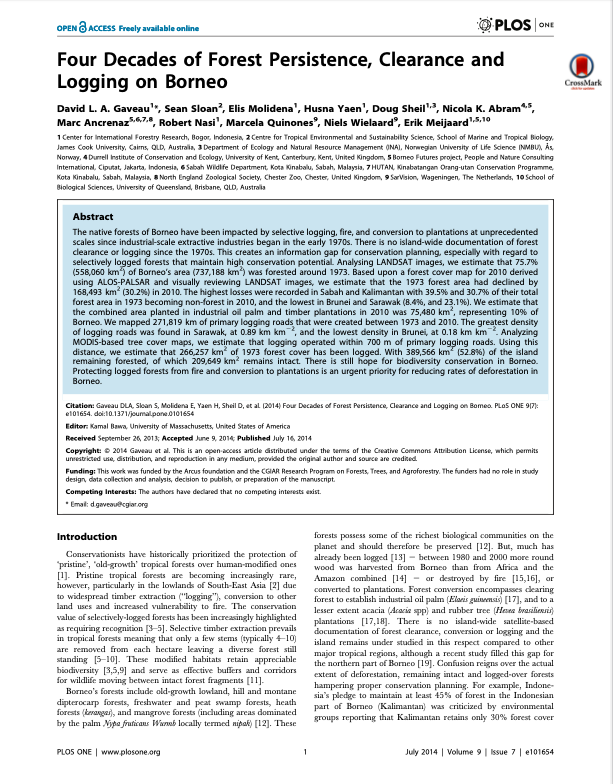Focal point
Location
The world’s first multidisciplinary Open Access journal, PLOS ONE accepts scientifically rigorous research, regardless of novelty. PLOS ONE’s broad scope provides a platform to publish primary research, including interdisciplinary and replication studies as well as negative results. The journal’s publication criteria are based on high ethical standards and the rigor of the methodology and conclusions reported.
Scope
PLOS ONE features reports of original research from all disciplines within science and medicine. By not excluding research on the basis of subject area, PLOS ONE facilitates the discovery of connections between research whether within or between disciplines.
We will also consider the following article types:
- Systematic reviews. We consider publishing systematic reviews only if the methods ensure the comprehensive and unbiased sampling of existing literature.
- Submissions describing methods, software, databases, or other tools. We consider submissions describing methods, software, databases, or other tools if they follow the appropriate reporting guidelines.
- Qualitative research. We consider publishing qualitative research only if it adheres to appropriate study design and reporting guidelines.
- Studies reporting negative results.
Members:
Resources
Displaying 6 - 7 of 7Closing Yield Gaps: How Sustainable Can We Be?
Global food production needs to be increased by 60–110% between 2005 and 2050 to meet growing food and feed demand. Intensification and/or expansion of agriculture are the two main options available to meet the growing crop demands. Land conversion to expand cultivated land increases GHG emissions and impacts biodiversity and ecosystem services. Closing yield gaps to attain potential yields may be a viable option to increase the global crop production. Traditional methods of agricultural intensification often have negative externalities.
Four Decades of Forest Persistence, Clearance and Logging on Borneo
The native forests of Borneo have been impacted by selective logging, fire, and conversion to plantations at unprecedented scales since industrial-scale extractive industries began in the early 1970s. There is no island-wide documentation of forest clearance or logging since the 1970s. This creates an information gap for conservation planning, especially with regard to selectively logged forests that maintain high conservation potential. Analysing LANDSAT images, we estimate that 75.7% (558,060 km2) of Borneo’s area (737,188 km2) was forested around 1973.



